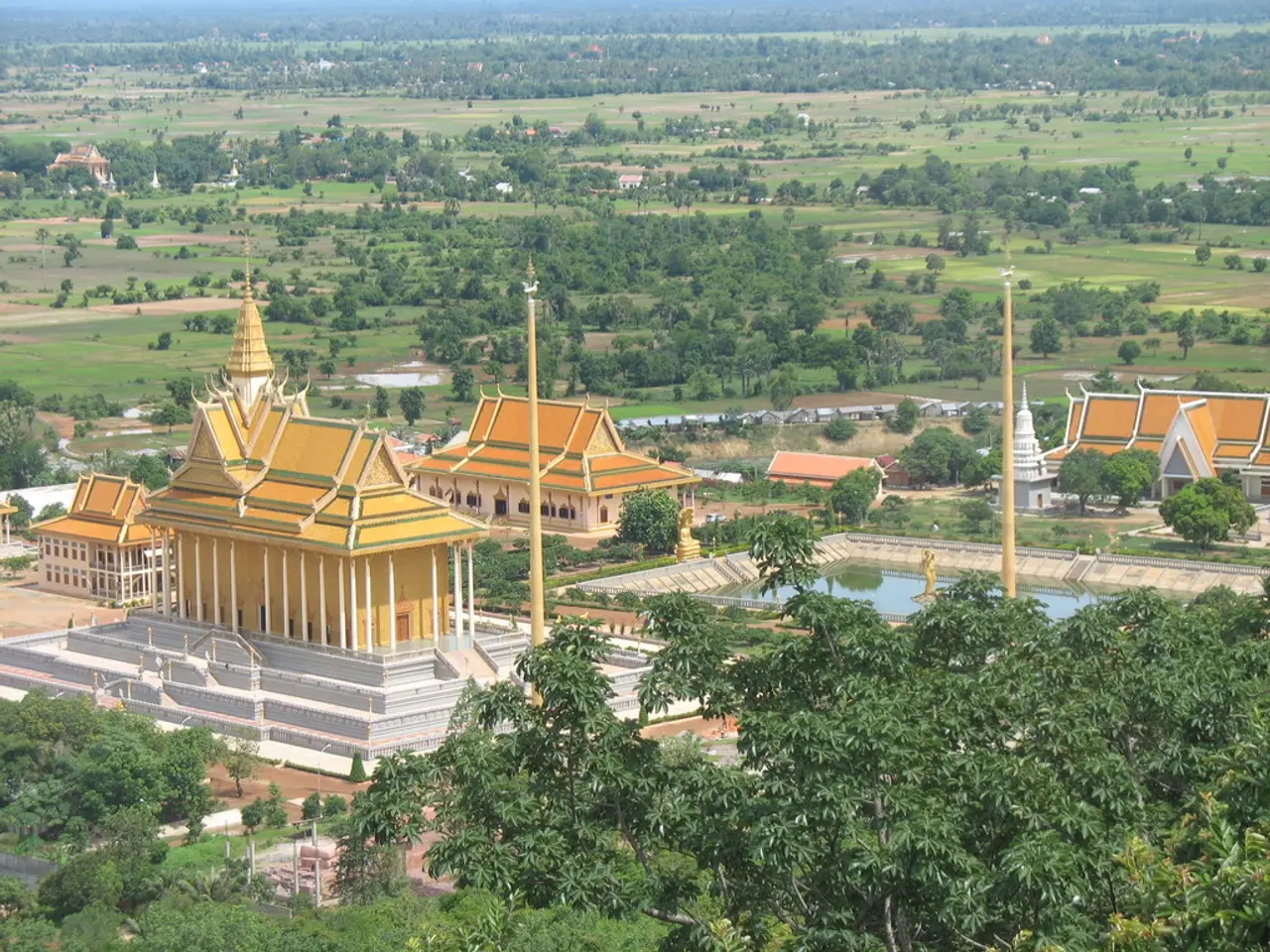Ancient city of Eretria in Greece, known for its archaeological sites and the Ancient Agora.
Eretria, a charming seaside town nestled along the Evian Gulf in Greece, is home to one of the most significant archaeological sites in the country. This ancient city-state, with its well-preserved ruins, offers a captivating glimpse into the history of ancient Greece.
The archaeological site in Eretria dates back to the Neolithic period, with evidence of human presence dating as far back as 3500-3000 BC[1]. Although the Neolithic presence is less prominent compared to later periods, it serves as a crucial foundation for understanding Eretria's long history.
From the classical Greek era onwards, the site reveals a wealth of landmarks that highlight Eretria's cultural, religious, and civic importance. Remains of a significant ancient Greek theater, temples dedicated to Ares, Apollo, and Dionysus, and the House of Mosaics – adorned with intricate pebble mosaics illustrating mythological scenes – are just a few of the treasures waiting to be discovered[2].
The Sanctuary of Artemis near Amarynthos, uncovered through excavations by the Swiss School of Archaeology, provides valuable insights into Eretria's religious practices[2]. Remnants of city fortifications and an acropolis nearby offer a glimpse into the strategic and defensive role Eretria played over centuries[3].
Visitors can explore these sites through walking trails around the modern town, with interpretative signs and museum support enhancing understanding of Eretria’s layered history[3]. The Archaeological Museum of Eretria houses artifacts spanning from the Neolithic through to the classical and later periods, serving as an essential resource for understanding the city’s historical and archaeological evolution[4].
Despite its rich history, Eretria remains a small, unassuming seaside town. The archaeological site, however, continues to reveal new insights about the past, making it a must-visit destination for history enthusiasts and casual tourists alike[5]. The site's popularity among both Greek and foreign tourists is well-deserved, as Eretria offers a unique opportunity to step back in time and walk among the ruins of an ancient city-state.
[1] Swiss School of Archaeology in Greece. (n.d.). Eretria. Retrieved from https://www.ssag.ch/en/projects/eretria/ [2] Archaeology in Greece. (n.d.). Eretria. Retrieved from https://www.archaeologyingreece.com/eretria/ [3] Greek Ministry of Culture and Sports. (n.d.). Archaeological Site of Eretria. Retrieved from https://www.culture.gr/culture/culturalheritage/monuments/M765 [4] Archaeological Museum of Eretria. (n.d.). About the Museum. Retrieved from https://www.amere.gr/en/about-the-museum/ [5] Lonely Planet. (2021). Eretria. Retrieved from https://www.lonelyplanet.com/greece/euboea/eretria
Read also:
- Federal Environmental Protection Agency under scrutiny for alleged manipulation of soil sample results following East Palestine catastrophe
- Breathing Methods for Bronchitis: Classifications and Their Functions
- Antibiotic Z-pack for strep throat: Dosage details, potential consequences, and duration of treatment
- Throat discomfort and yawning: Possible reasons and when to seek medical attention





